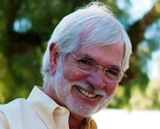Barack Obama campaigned on a platform of "Change"; however, the fact of his election proves that America has already changed.
I was born in my grandmother’s farmhouse in West Texas almost 68 years ago, and my father often said every American boy had a chance to be president, but I’m certain he never imagined the boy could be black.
I was cared for by a middle-aged African-American woman named Ora, and her husband, Tom, worked in our fields. I don’t recall where they lived, but it was probably in one of the barns. I do remember my father coming in the house one day to get his shotgun. He was angry because Tom had "talked back" to him, but my mother restrained him and the couple moved away.
I started to school when I was five years old after my mother died, and our school bus passed by the Bradford Colored School, a small frame building at the end of a dirt road in a cotton field.
My 1954 school yearbook has a group picture of the Bradford students on the last page. There were 23 of them, and one tall boy stood off to one side. "Charles" is handwritten above his face; however, I have no memory of him or how he came to sign my book. There is also a photograph of his teacher: Mrs. Marjorie Thomas, a pleasant-looking young African-American woman with a B.S. degree from Texas College.
My father died when I was ten years old and a couple of years later I began to run away from home. I was finally arrested and taken before a judge who "allowed" me to attend the New Mexico Military Institute instead of being confined at the Gatesville State School for Boys. Racial segregation had been ruled unconstitutional by the Supreme Court in 1954; however, there are no black faces in my 1958 yearbook.
I enlisted in the Navy after graduation and, even though President Truman had ordered desegregation of the military ten years earlier, there was only one African-American in my recruit class. At the time, most blacks served as cooks and stewards, and there were none in my Hospital Corps training school.
I was assigned to the San Diego Navy Hospital and was working as a senior corpsman on the chest wards in 1960 when a young African-American patient was diagnosed with lung cancer. His condition rapidly deteriorated and he was moved to a room where his young wife could spend time with him in private. I do not recall his name, but I vividly remember holding his hand as he struggled to breathe... and died.
Under Navy tradition, the body of a deceased sailor is escorted by someone who served with him. The young man’s wife requested me to accompany her to their home in the South and to attend the funeral; however, an officer strongly "suggested" I decline because my presence might make his family feel "uncomfortable." Whether it was acquiescence to authority or unquestioned acceptance of de facto segregation, I have always regretted giving in to the pressure.
From time to time during the past 50 years, I have thought about Charles and the young widow who honored me by her request and whom I disrespected with my refusal. The other night as I watched on television as 240,000 people gathered in Chicago to celebrate the election of Barack Obama, I again wondered what ever happened to these two people from my past. I decided to try to find out.
The only way I will ever locate the widow is if she reads this and contacts me; however, the Texas College Alumni Association found Mrs. Thomas, the Bradford teacher. Now 80 years old and nearly blind, she retired after 43 years of teaching and still lives in Lubbock. She graciously consented to talk to me on the telephone.
"Charles? Why, he was killed in a car wreck." She remembered many of the Bradford students she taught for 13 years, the hardships they endured together, and their accomplishments in later years.
Land for the school was donated by a white farmer who wanted to provide an education for the eight African-American children of the Douglas family that worked for him, and the local school district provided the building and discarded furniture. There were no improvements: "Water was in a tin barrel in the corner and we had to use the outdoor toilets."Local farmers would stop by and give her fresh peas and potatoes from their fields, and later on the school district delivered lunches for her students. "No child can learn when they’re hungry."
The school district also provided the bus that Mrs. Thomas drove each day to pick up her students, some of whom were children of African-Americans stationed at the local Air Force base. "It was cold when we got there in the winter and we all gathered around the butane stove to keep warm."
She taught students from the first through the eighth grade. "The older children helped me with the younger ones. They only gave us the old used text books after they got new ones. The workbooks had already been filled in, and I had to retype them at night for my students. We never got anything new."
Official segregation did not end in Texas until after passage of the Civil Rights Act of 1964. The Bradford School was closed, and Mrs. Thomas was able to attend Texas Tech to obtain a Master’s degree. One of her professors asked her whether she wanted to be called a "Black or Negro?" She told him she "preferred Mrs. Thomas or Marjorie."
(Note: You can view every article as one long page if you sign up as an Advocate Member, or higher).





